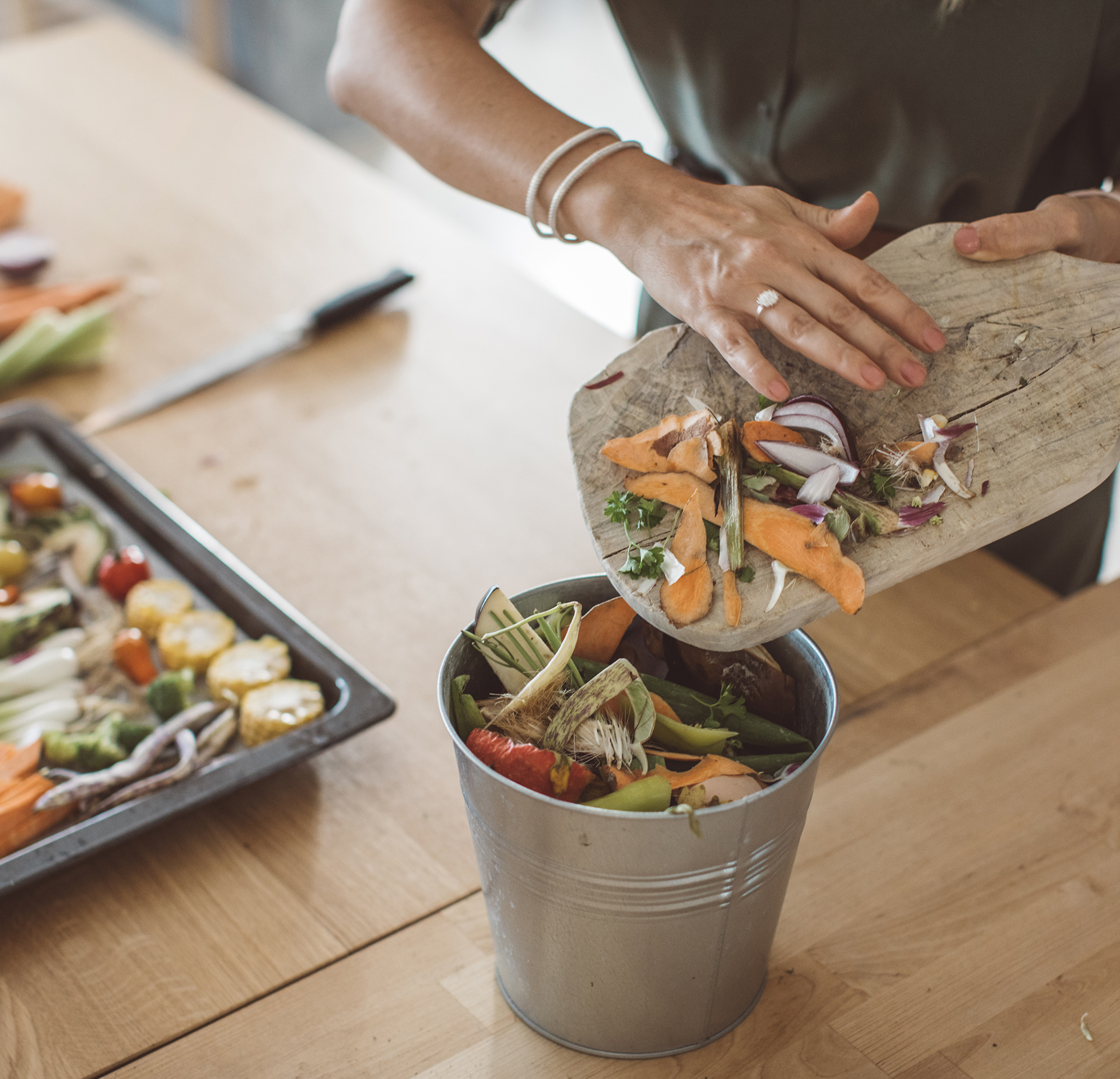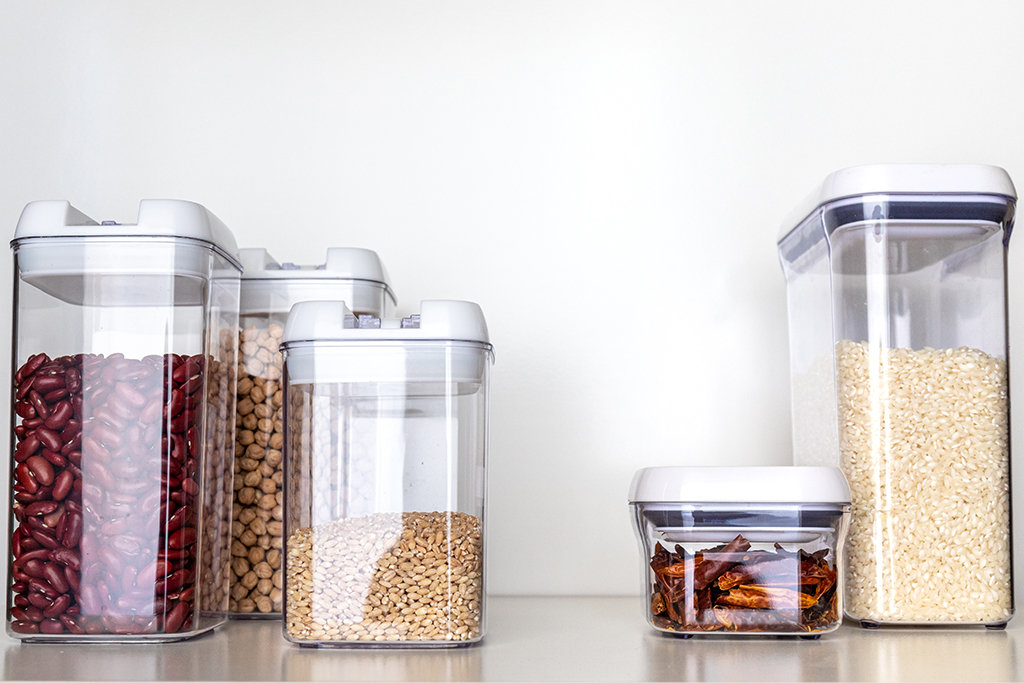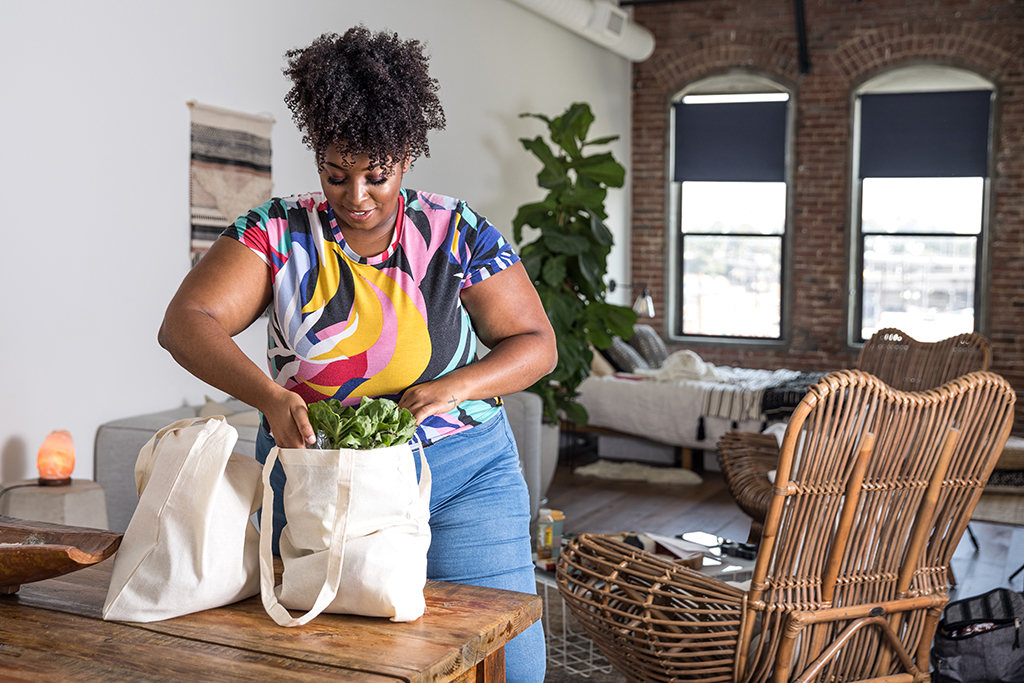
Take the No-Waste Challenge
American writer and environmental activist Wendell Berry once said, “Earth is what we all have in common.” And it’s true. For the time being, at least, Earth is the only planet we have, and keeping it beautiful starts with individuals.
According to most recent figures obtained by the Environmental Protection Agency (EPA), each American, on average, produces about 4.9 pounds of trash each day, which adds up to a little over 292 million tons of trash per year. Everyday life can get messy, and it’s understandable for some trash to pile up. However, if you’re looking to make an impact by reducing the amount of waste you create, there are plenty of ways to do it.
This guide outlines some of the easiest solutions for cutting back on waste and offers tips for implementing a “less is more” outlook in your life. And be sure to take the quiz that follows to find out your wastefulness rating!
Tread Lightly
Just like the footprint you leave when walking barefoot in the sand, every action you take makes a metaphorical footprint on the planet—and it’s not just buying plastic water bottles or neglecting to recycle that has an impact. Simple, everyday behaviors you may not think twice about, like leaving the water running when brushing your teeth or forgetting to turn the lights off when you leave a room, can make a negative environmental impact.
When You're Home

 The kitchen may be the first place you think of when trying to reduce the amount of waste you create, and you’d be right: it’s a great place to start! Take a look at your pantry and cabinets. How many items are prepackaged? Is there anything you could have purchased without the box, container, or bag? Things like rice, beans, grains, and cereals can be bought in bulk and placed in reusable, airtight containers, saving plastic and money.
The kitchen may be the first place you think of when trying to reduce the amount of waste you create, and you’d be right: it’s a great place to start! Take a look at your pantry and cabinets. How many items are prepackaged? Is there anything you could have purchased without the box, container, or bag? Things like rice, beans, grains, and cereals can be bought in bulk and placed in reusable, airtight containers, saving plastic and money.
 Prevent your trashcan from filling up quickly (and getting smelly) by composting natural food scraps (e.g., banana peels, coffee grounds, and unused fruit and veggie bits). If you don’t want to spend time creating a compost bin from scratch, there are now a handful of models you can purchase online that do the work for you. If you have a garden or flower beds, be sure to utilize any compost you generate to help plants and flowers grow.
Prevent your trashcan from filling up quickly (and getting smelly) by composting natural food scraps (e.g., banana peels, coffee grounds, and unused fruit and veggie bits). If you don’t want to spend time creating a compost bin from scratch, there are now a handful of models you can purchase online that do the work for you. If you have a garden or flower beds, be sure to utilize any compost you generate to help plants and flowers grow.
 If you or your kids have a bad habit of forgetting to turn lights off when leaving a room, consider setting the lights throughout your home on a timer or investing in an Amazon Echo, which can help you turn nearly all your electronics (not just lights) on and off from any room in the house.
If you or your kids have a bad habit of forgetting to turn lights off when leaving a room, consider setting the lights throughout your home on a timer or investing in an Amazon Echo, which can help you turn nearly all your electronics (not just lights) on and off from any room in the house.
 If you’re still working from home, then chances are you’re using a lot more electricity in your office than in years past. If your workspace gets plenty of natural sunlight, consider opening the blinds or curtains on nice days and turning off your desk or overhead lights.
If you’re still working from home, then chances are you’re using a lot more electricity in your office than in years past. If your workspace gets plenty of natural sunlight, consider opening the blinds or curtains on nice days and turning off your desk or overhead lights.
 At the end of the day, remember to shut down your computer and unplug it so you aren’t using power unnecessarily. You can also unplug desk lamps, space heaters, fans, shredders, and any other electric devices while not in use.
At the end of the day, remember to shut down your computer and unplug it so you aren’t using power unnecessarily. You can also unplug desk lamps, space heaters, fans, shredders, and any other electric devices while not in use.
 If you only keep one recycling bin in your home (and it’s not in your office), it can be easy to forget the process of separating your trash and recycling throughout the work day. Consider purchasing a separate small bin for things like scrap paper and other recyclables, or pile discarded papers into boxes you can recycle later.
If you only keep one recycling bin in your home (and it’s not in your office), it can be easy to forget the process of separating your trash and recycling throughout the work day. Consider purchasing a separate small bin for things like scrap paper and other recyclables, or pile discarded papers into boxes you can recycle later.
 Almost every working adult who buys coffee out is guilty of tossing a plastic or paper coffee cup into the trash without a second thought. However, think about how many times you do that in a month and … yikes. Invest in a high-quality, at-home coffee maker, instead, or bring a reusable tumbler or cup the next time you visit the coffee shop.
Almost every working adult who buys coffee out is guilty of tossing a plastic or paper coffee cup into the trash without a second thought. However, think about how many times you do that in a month and … yikes. Invest in a high-quality, at-home coffee maker, instead, or bring a reusable tumbler or cup the next time you visit the coffee shop.
 If you already bring reusable bags to the grocery store, take your game up a notch by bringing reusable produce bags instead of using the thin plastic bags the store provides. And if you don’t already have reusable bags, consider purchasing some. Most grocers have them at the store, they typically don’t cost more than a few dollars, and some stores even offer discounts at checkout to shoppers who use them.
If you already bring reusable bags to the grocery store, take your game up a notch by bringing reusable produce bags instead of using the thin plastic bags the store provides. And if you don’t already have reusable bags, consider purchasing some. Most grocers have them at the store, they typically don’t cost more than a few dollars, and some stores even offer discounts at checkout to shoppers who use them.
 While grocery stores are the most common places to bring reusable bags, who says you can’t bring them while you run other errands? Keep a few bags in your car at all times so you can make sure you have them for trips to the pharmacy, hardware store, and even clothing stores.
While grocery stores are the most common places to bring reusable bags, who says you can’t bring them while you run other errands? Keep a few bags in your car at all times so you can make sure you have them for trips to the pharmacy, hardware store, and even clothing stores.
 Shopping locally is one of the best ways to help reduce waste on a national, and even global, scale. When you buy goods from local businesses, you are helping to reduce the amount of transportation (and therefore fossil fuels) required to get that product to you. And, just as important, you’re helping small businesses!
Shopping locally is one of the best ways to help reduce waste on a national, and even global, scale. When you buy goods from local businesses, you are helping to reduce the amount of transportation (and therefore fossil fuels) required to get that product to you. And, just as important, you’re helping small businesses!
 Many large online retailers, including Target and Walmart, now sometimes ask if you would like to postpone the shipping for some of the items you ordered so that they may be shipped together. This helps save transportation costs for the company, reduces waste, and can even help you save—as the companies sometimes offer discounted shipping for selecting this option.
Many large online retailers, including Target and Walmart, now sometimes ask if you would like to postpone the shipping for some of the items you ordered so that they may be shipped together. This helps save transportation costs for the company, reduces waste, and can even help you save—as the companies sometimes offer discounted shipping for selecting this option.
While You Work

When You Shop

As you can see, reducing the amount of waste you produce on a daily basis doesn’t have to be a complicated process full of compromises. It’s as simple as changing your mindset and incorporating simple, eco-friendly behaviors, one small step at a time.
Share these eco-friendly ideas with friends and family.
Up Next:
What's Your Wastefulness Score?

Posted in April 2021 on Jan 20, 2021